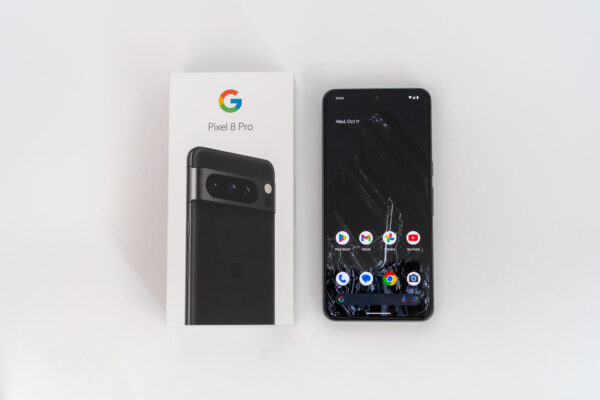
The bigger of Google’s 2023 flagship smartphone, the Pixel 8 Pro, is great. Although it may seem like there can only be small incremental upgrades from the last Pixel 7 Pro, Google manages to surprise us. Some are meaningfully awesome, others are lesser so.
I’m not going to write this post like a regular review of the Pixel 8 Pro. For full reviews, may I recommend those from TheVerge, AndroidPolice, GSM Arena, ZDNet, or any of your favourite source of Android news. Instead, this is going to be my thoughts on the Pixel 8 Pro.
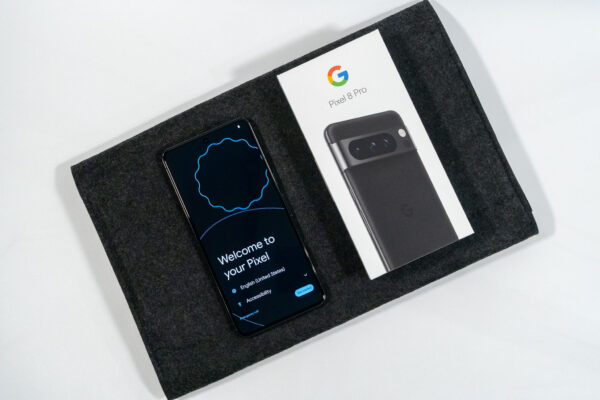
Needless to say, Google has made some headway with their Pixel line of smartphones. It’s the fastest growing smartphone brand in North America. It’s the only smartphone brand that did not shrink in North America in Q2 2023, which is otherwise the worse for smartphones overall in a decade. That’s quite an achievement, even if the Pixel market share in absolute terms is still but a tiny slice.
Having been a fan of Nexus and now the Pixel series of smartphones, I’m happy for Google. I could not wait to see what Google can do with the Pixel 8 smartphones. Yet, at the same time, I was prepared to be underwhelmed. The Pixel 7 Pro was already great. What more could we get? A bit more of smarter AI here, and then some other incremental hardware upgrades there?
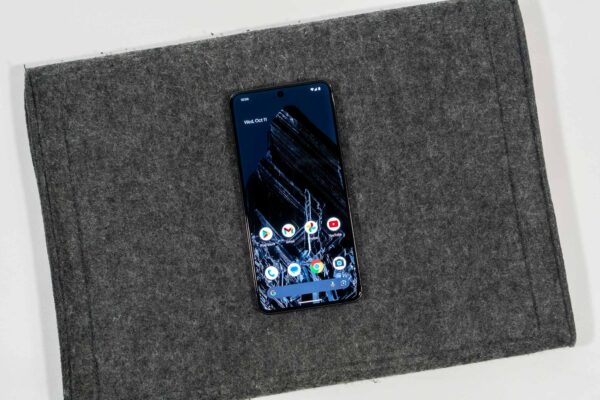
I was both awed and also a bit disappointed with what we got. Let me start with the disappointment. A bunch of smart AI stuff, not new, are still unavailable in Singapore. Why?
The really awesome Call Screening and Hold for Me features are still current features that Google talks about. Yet, they are only available in selected territories, Singapore not included. Is Singlish too difficult for Google to handle? I would really love to use both of these features, Call Screening to deal with persistent telemarketing calls and Hold for Me to handle banks and other call centres who make we wait for insane lengths of time.
The new AI smarts are neat though, and we get to use them. Magic Editor is impressive, provided the object you want to remove or relocate can be marked out cleanly. I want to say Google did an awesome thing with Magic Editor, but at the same time I’m a bit apprehensive that Google is making it too easy to create a reality that is not real.
I understand you could do just about all the same things with Photoshop. The only thing Google is doing is to make it too easy to do these edits. Anyone, without Photoshop (or similar tools), without skills, can easily distort reality any time. It is a bit too casual.
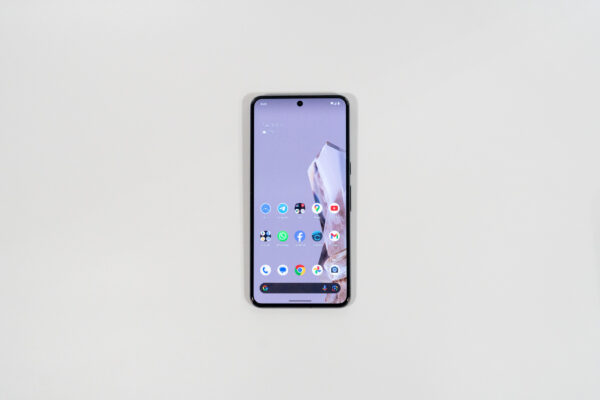
This is another level up from last year’s Magic Eraser, because Magic Editor can create new content that did not exist in the photo. It’s more unreal than the new Best Take, which simply swaps out faces which were actually photographed in close time proximity, into a composite creation that didn’t actually happen at any instance in time. It’s also more unreal than Audio Magic Eraser, which only just removes noise from videos, which is perhaps milder than removing unwanted objects in photographs.
I like that you can make better photos and better videos. Yet, at the same time, I start to question the reality of photos and videos.
Finally, Google has gotten around to give us pro-camera controls in the Pixel 8 Pro. I know many people won’t use this; even I won’t use it often. But it’s about giving us choice that I appreciate.
Google is slow at getting their camera app to do simple things. Do you remember one time when Google required panoramas to be captured shot by shot, instead of a smooth continuous panning motion that most other Android phones could do?
For the most part, we have a Pixel 8 Pro that has better hardware. Here’s a simple rundown of some improvements.
| Pixel 8 Pro | Pixel 7 Pro | |
| Display | LTPO 1-120 Hz, 2400 nits | LTPO 60-120Hz, 1500 nits |
| Main Camera | 50 MP wide, 48 MP tele, 48 MP ultrawide | 50 MP wide, 48 MP tele, 12 MP ultrawide |
| Selfie Camera | 10.5 MP (with PDAF) | 10.8 MP (no PDAF) |
| Wi-Fi | Up to Wi-Fi 7 | Up to Wi-Fi 6e |
| Battery | 5050 mAh, 30 W wired charging | 5000 mAh, 23 W wired charging |
Worth noting is that the Pixel 8 Pro has a display resolution that is actually lower than that of the Pixel 7 Pro (1344×2992 vs 1440×3120), which I consider to be better, because less pixels means more energy efficient, and who can tell the difference at that pixel density anyway.
Those are the main hardware differences that seem to matter, and when you look at them, they don’t seem like that big of a deal. There’s one extra bit worth mentioning: the selfie camera is now good enough to be relied upon for biometric face recognition.
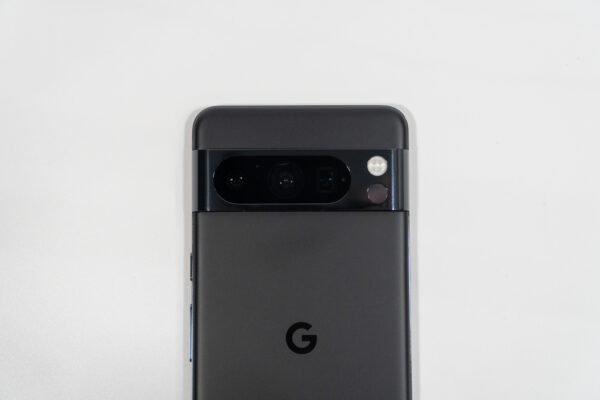
On the other hand, there is one new hardware in the Pixel 8 Pro that is just there to up the competition: temperature sensor. It can be used to measure temperature of a variety of things, like your coffee. When FDA approval comes around, you can use it to take your own body temperature. I’m a bit meh on this.
So, we have a bit of nicer software, and a bit of better hardware. The most awesome thing, though, to me, is the next one. We have lamented about how Google doesn’t support their hardware long enough, certainly not as long as Apple does for the iPhones, but very disappointingly, also outdone by Samsung in their premium and even some not-so-premium smartphones.
That has changed. Google didn’t just match Samsung. Google is promising 7 years of OS and security updates for the Pixel 8 Pro and Pixel 8. That is a leap over Samsung. That is comparable to the unwritten support life of iPhones. That is really awesome, and I think that’s something that can be quite a game changer.
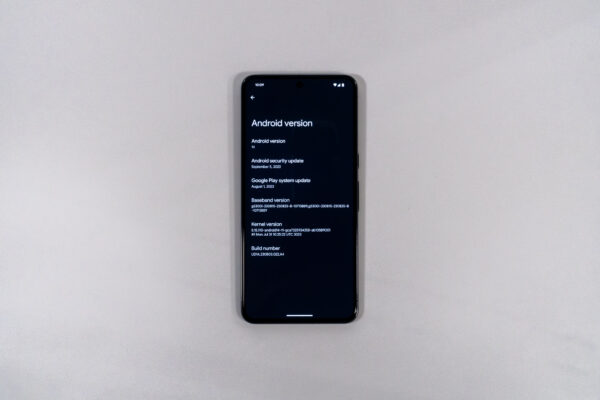
Provided, of course, that the Pixel 8 Pro hardware will last 7 years. It seems wishful. Also, let’s not forget, while Google can provide Android 20 to the Pixel 8 Pro, they could say that a whole slew of features would not be available, either because the hardware is too old, or that they are exclusive to the newer Pixels. Still, maybe, be thankful that there’ll at least be security updates.
The new Pixel 8 Pro costs more than last year’s Pixel 7 Pro. It starts at US$100 more in the US, and S$250 more in Singapore. That puts the Pixel 8 Pro launch price here at S$1,549. Upgrading from 128 GB to 256 GB of storage is now just S$100 more, instead of S$150 more in the past.
| Pixel 8 Pro | Pixel 7 Pro | |
| 128 GB | S$1,549 | S$1,299 |
| 256 GB | S$1,649 | S$1,449 |
| 512 GB | S$1,849 | – |
The launch promotions are very attractive, with Google Singapore offering S$549 in store vouchers for the Pixel 8 Pro, or a simple S$400 cash discount from SingTel. At launch, the Pixel 8 Pro’s price can be said to be competitive. But some good promotions better come back soon, because at S$1,549, the Pixel 8 Pro is quite expensive for a bit more AI, a bit more hardware, and software support for 7 years.
The Pixel 8 Pro is great, not hard to recommend, if you can get it with a straight up S$400 cash discount.
You can get the Pixel 8 Pro in Obsidian (as reviewed here), Porcelain (white), or Bay (blue).
View Comment Policy